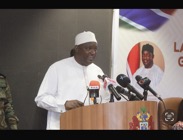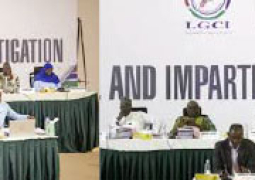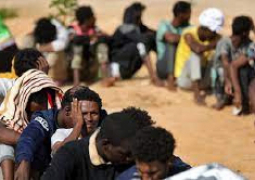
Speaking at an event organised by the Ministry of Gender and Social Welfare on Monday, 18 November 2024, Mr. Barrow highlighted the critical role of women’s empowerment in achieving sustainable development and advancing the nation’s socio-economic goals.
The President emphasised that women’s empowerment is globally recognised as a cornerstone of a nation’s progress and prosperity. He underscored his government’s commitment to gender equality as a vital driver for achieving all 17 Sustainable Development Goals (SDGs) and accelerating progress toward Agenda 2030.
In his statement, the President reiterated the government’s dedication to ensuring that women and girls enjoy their rights to education, health services, justice, security, and economic resources, including access to markets and property ownership.
“We are determined to protect these rights through legal and policy instruments that provide a blueprint for women’s empowerment and development. With this in mind, it gives me great honour to officially launch The Gambia’s National 10-Year Gender Policy, 2025-2034, and to inaugurate the 2024-2029 National Women Council,” said President Barrow.
The President called on all Gambians to work collectively toward building a future where every woman and girl can succeed, free from discrimination, inequality, and violence.
The new National Gender Policy Framework, according to President Barrow, marks a significant milestone for The Gambia, providing a clear roadmap for transformative action to realise women’s rights in alignment with the nation’s Constitution and progressive values.
“The Policy contains the Government’s vision and a clearly defined intent to provide women with the relevant rights and opportunities to prosper as equal partners and citizens before the law,” he stated.
President Barrow expressed confidence that the effective implementation of the Policy would contribute significantly to inclusive socio-economic development, ensuring women’s roles are free from barriers and fostering their empowerment in all sectors.
Recognising the pivotal role of women and girls in national development, he stressed that the journey towards gender equality is a collective responsibility.
“This journey starts with the commitment of every Gambian, especially those of us present here. The incoming Council has a critical role to play in this mission, and the Policy provides a solid foundation for us to move forward with a common vision and shared purpose,” he concluded.





